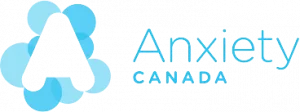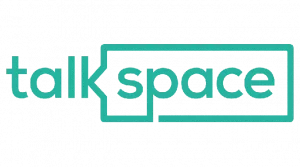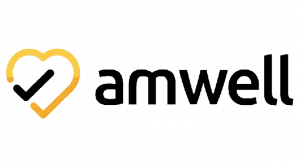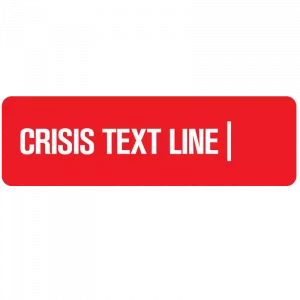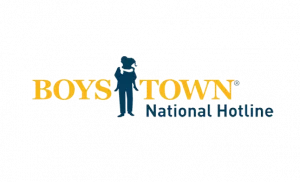45 Tools and Resources for Student Mental Health
The Centers for Disease Control and Prevention states that depression and anxiety in children and teens have increased over time, and more than 5 out of 10 children between the ages of 3 and 17 with behavior disorders have needed treatment.
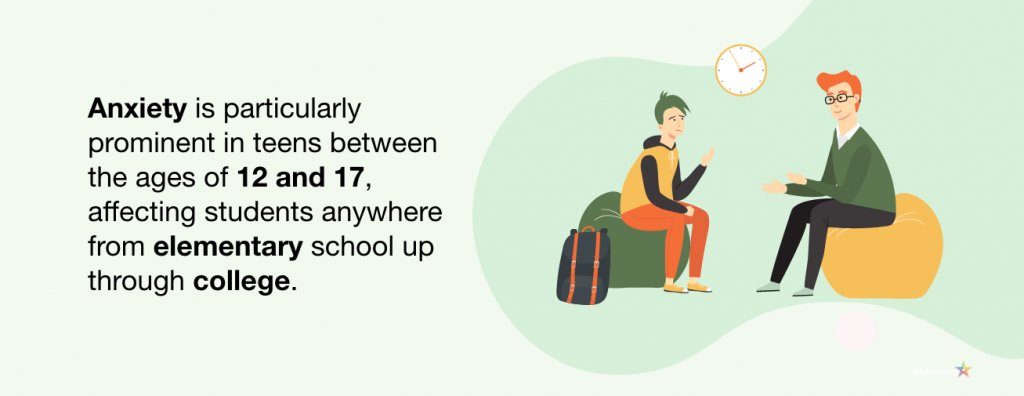
Adults aren’t without risk, though. The National Institute of Mental Health estimates that around 7.8% of all adults have dealt with at least one major episode of depression (in 2019). Episodes of depression are more common among women, those between the ages of 18 and 25, and those of mixed ethnicities.
It is important that you have the tools you need to take care of your mental health, whether you just want to get more organized to reduce stress or you need to talk to someone about thoughts of suicide.
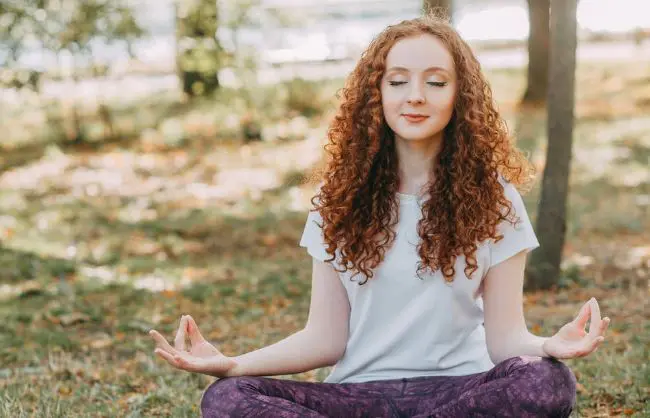
45 Best Tools for Student Mental Health
Below are the 45 best tools that we’ve collected for mental health. These apps, websites and services are there to help students, young adults and adults overcome challenges with stress, anxiety, substance use disorders and mental health concerns.
Mental Health Apps
Your mental health needs to be your focus no matter where you are, including while you’re lying in bed in your dorm room or while you’re on a trip with your sports team. These mental health applications go with you because you can download them to your smartphone.

Use these mental health apps on the go.
-
Best for: Stress – Breathe2Relax
Breathe2Relax is an app from the National Center for Telehealth & Technology. It is designed to be used with the iPad and walks you through breathing exercises, stress ratings, and more. As a portable stress management tool, it may help you manage anger, anxiety, and more.
-
Best for: Stress – Happify
Enjoy a happier life with Happify. Happify helps you overcome negative thoughts, stress and challenges in your life. It works by helping you build better habits while breaking negative habits that could be harming you.
-
Best for: Stress – Headspace
In just a few minutes a day, Headspace claims that it can help you reduce your stress, improve your focus and improve your sleep. This app teaches simple meditation and mindfulness.
-
Best for: Anxiety – Mindshift – Anxiety Canada
https://www.anxietycanada.com/
Anxiety Canada’s Mindshift app is free, evidence-based anxiety relief in the palm of your hand. It uses strategies that are based on Cognitive Behavioral Therapy to help you develop an effective way of thinking while learning to relax. A community forum is included.
-
Best for: Depression – MoodTools
MoodTools is an app for students who feel sad or depressed. MoodTools aims to lift your mood by having you take a simple depression test before having you enter a thought diary. It will go over a safety plan with you and help you identify when you may need psychological care from a professional.
-
Best for: Peer-support and coaching – Sanvello
Sanvello provides all the support you need to improve your mental health in one place. Self-care, peer support, coaching, and therapy are all available on this top-rated app with over 3 million users.
-
Best for: Anxiety – Self-Help for Anxiety Management – University of the West of England
The University of the West of England created a helpful iPhone app called SAM, or Self-help for Anxiety Management. This has tabs like, “How’s my anxiety right now?” and “Anxiety Tracker” to help you keep track of your anxiety and take control of your emotional state.
-
Best for: Veterans, PTSD – VA Mental Health Apps
The U.S. Department of Veterans Affairs has its own VAMobile app which helps veterans, some of which could now be students, as they deal with their mental health. A virtual care manager app, COVID-19 coach, PTSD coach, and other apps are available through the VA.
-
Best for: Overall mental health assessment – What’s My M3
Taking control of your mental health is possible with this free and anonymous mental health assessment. The assessment gives you a better idea of how your emotional wellbeing is doing, so you can decide on the steps to take to start feeling better.
-
Best for: Anxiety – WorryWatch
If anxiety is holding you back, you’ll appreciate WorryWatch. This app has a guided anxiety journal, guided coping techniques, a mood tracker, and more. Keep track of your mental health and see improvements with this tracker.
-
Best for: Mental health therapy – Sesh
Sesh Therapy is designed for iPhone and free to use. It provides access to inclusive and diverse support groups as well as industry-leading therapists. It’s affordable mental health care for those who need a boost once or regularly.
-
Best for: Mood journaling, mental health therapy – Moodfit
Your mental health can be improved by looking at your goals and considering CBT. With Moodfit, you can do both. The app isn’t free, but you can try it for seven days and see if you enjoy the mood journal, gratitude exercises, breathwork exercises, and other benefits.
-
Best for: Online therapy – Talkspace
Talkspace and Verywell came together to create an online therapy space that many students could benefit from. There are licensed therapists available, and you can message them 24/7. Unlike some telehealth services, you can start immediately.
-
Best for: Sleep and meditation – Calm
Calm is the #1 app for sleep and meditation. It claims to help you improve your focus, manage anxiety and stress, and improve the quality of your sleep. The overall goal of the app is to work on self-improvement techniques to get you on the right path to good mental health.
-
Best for: Daily self-care and mental wellness – Shine
Shine is designed to be used as a daily mental wellness app that boosts your mood from the start of the day. It has daily guided meditations, self-care courses, and personalized support available to you. Virtual workshops are held monthly, too.
-
Best for: Organization and anxiety reduction – Todoist
Todoist will help you stay organized, which can help you minimize the stress you face in your daily life. Regain calmness and clarity by getting the tasks out of your head and onto your to-do list where you can visualize what you have to do for the day and cross off tasks you finish.
Teletherapy
To see a professional therapist, counselor, psychologist, or psychiatrist, you may want to have a teletherapy app on hand. These apps are great for students who have a budget for their care and limited time to go to a physical office for treatment.
-
Best for: Regular therapy – Cerebral
Cerebral is just $29 with in-network insurance or $259 to $325 per month without insurance. It gives you access to behavioral health professionals through text, phone, and live video. Therapists are matched to their patients for the best results.
-
Best for: Regular therapy – Teladoc
https://www.teladochealth.com/
Teladoc starts at $99 for therapy or $119 for psychiatry. It may be cheaper if you have insurance, too. It serves teens and adults over live video and auto, making it easy to see someone for your mental health.
-
Best for: Psychiatry sessions – Talkspace
Talkspace is affordable at prices as low as $65 per week, and you can have full-on psychiatry sessions for $199 to $125. For those without insurance in school, this could be a good way to get mental health support professionally from home.
-
Best for: Live therapy sessions and unlimited messaging – BetterHelp
BetterHelp costs around $240 per month to start, but it allows you to talk to a live therapist from anywhere on live video. You also get unlimited messaging, so you get help when you need it.
-
Best for: Students with alcohol use disorders and co-occurring disorders – Monument
With pricing as low as $10 a month, live video and messaging options, and the potential for your health insurance to cover the cost, Monument may be a good app to try. It is an online therapy service that specifically works with alcohol use disorders and the associated mental health conditions.
-
Best for: Students on a budget, regular therapy, CBT – Wellnite
https://www.teladochealth.com/
At around $75 to $195 monthly, Wellnite is a good option for people on a budget. Wellnite offers phone and live video support from therapists and board-certified doctors on staff. Prescription delivery and CBT therapy are two benefits.
-
Best for: Regular therapy – Teladoc
Teladoc starts at $99 for therapy or $119 for psychiatry. It may be cheaper if you have insurance, too. It serves teens and adults over live video and auto, making it easy to see someone for your mental health.
-
Best for: LGBTQIA+ therapy – Pride Counseling
If you are part of the LGBTQ+ community, then Pride Counseling may be a good choice for you. It offers live chat, video, unlimited messaging, and phone access to therapists licensed to work with LGBTQIA+ individuals.
-
Best for: Affordable group meetings – Circles
At $80 a month, this is one of the more affordable options for care. Topic-specific groups join on circle and are led by certified coaches or licensed therapists as they go through group therapy together. Unlimited messaging with group members and therapists is included.
-
Best for: Couples needing couples therapy – ReGain
ReGain costs between $240 and $360 per month for unlimited messaging, live chat, phone, and video sessions with your therapist. This app is designed for couples, so if you and your college sweetheart are having issues, this is a good app for you.
-
Best for: Licensed therapy in the evening, on weekends, or on weekdays – Amwell
Starting at $109 a person, Amwell offers appointments over video or audio with licensed therapists. You can have a visit on weekends, during evenings or during weekdays, helping you get help when you need it.
-
Best for: Christian students looking for therapy – Faithful Counseling
https://www.faithfulcounseling.com/
For those who would like faith-based counseling and therapy, Faithful Counseling is a good option. Services include video, audio, chat, and messaging with therapists working with Christian, faith-based guidance.
-
Best for: Self-care, cognitive-behavioral therapy – Online-Therapy.com
https://www.online-therapy.com/
Online-Therapy is a service focused on cognitive behavioral therapy (CBT) that offers a suite of self-care tools that you can use to help improve your mental health. The app does provide resources to help you do self-care outside of sessions.
-
Best for: Students on a budget, social, mental health, and emotional therapy – Calmerry
Talk to a qualified therapist online to talk about your social, mental health, and emotional issues from the comfort of your home with Calmerry. The service starts at just $42 weekly and does have verified therapists. The app covers many kinds of mental health issues, so most people will find a therapist they can rely on there.
-
Best for: One-on-one teletherapy – HealthSapiens
HealthSapiens offers one-on-one counseling by phone, video, chat, or messenger. The service is on-demand, so you can have a session as soon as you need one. You can also have therapy from anywhere and at any time, 24/7.
Mental Health Websites
The following mental health websites may offer free services, chats, peer-to-peer listening options, and more to help those who need mental health support while in a dorm room, on a laptop, or while traveling.

Just log on to get help immediately.
-
Best for: Peer-to-peer support, teletherapy – 7 Cups
7 Cups, which used to be known as 7 Cups of Tea, is a free website that allows you to chat with volunteer listeners at any time. You can also sign up to be a listener. Today, the website offers counseling with licensed therapists at $150 monthly.
-
Best for: Peer-to-peer support – HealthfulChat
https://www.healthfulchat.org/
Sometimes, you just need to chat things out. With HealthfulChat, you can talk to peers about illnesses, disorders, mental health, and more to help you work through your emotions and get to a better emotional state.
-
Best for: Reading about mental health – Psych Central
Your mental health matters, and PsychCentral gives you an entire website of articles and information about mental health trends, mindfulness, and more. It’s a free site to browse, so you may educate yourself on mental and behavioral health.
-
Best for: Chatting about health conditions – The Mighty
The Mighty is a community of people who support those going through health challenges. There are chat groups for people with bipolar disorder, nutritional deficiencies, and others who may want to talk about similar health conditions.
-
Best for: Learning about mental health, improving your well-being – Happiful
If you’re not necessarily looking for a therapist at the moment but want the option, try Happiful. The site has a podcase, Happiful Hacks, and information on improving your well-being. You can also find a therapist through the site if you’d like one.
Mental Health Hotlines for Students
Mental Health Hotlines are emergency lines for those dealing with severe mental health issues. These are typically free and available at all times.

-
Best for: Youth in crisis – National Youth Crisis Hotline
https://www.crisistextline.org/
The National Youth Crisis Hotline can be reached at 1-800-448-4663. This hotline is available to youth going through any issues ranging from suicidal thoughts to anxiety.
-
Best for: Youth in crisis, LGBTQIA+ – The Trevor project
https://www.thetrevorproject.org/
The Trevor Project may be reached at 866-4-U-TREVOR, and gives you the option of speaking with a counselor to talk about your concerns. Common topics include mental health, sexual orientation, suicide, and gender identity.
-
Best for: Teens – Boys Town National Hotline
Boys Town National Hotline is designed for teens and is accredited by the American Association of Suicidology. It is staffed around the clock every day of the year, and you can reach it by calling 800-448-3000 or by texting VOICE to 20121.
-
Best for: Teens – Youthline
YouthLine is designed for teens and young adults. It provides free teen-to-teen crisis support and is confidential (though they are mandatory reporters). Call at 877-968-8491 to talk to someone now or text teen2teen to 839863.
-
Best for: Students with thoughts of suicide, people of all ages – National Suicide Prevention Lifeline
https://suicidepreventionlifeline.org/
Suicide takes thousands of lives annually. Call 1-800-273-8255 to get help if suicide or dark thoughts have you concerned about your mental health. There is a line for the deaf and hard of hearing as well as a chat on the website, so there is always 24/7, free support available.
-
Best for: Students or family members with mental health disorders/substance abuse concerns – SAMHSA
SAMHSA, or the Substance Abuse and Mental Health Services Administration, offers a free, 24-7, 365 hotline for individuals and families dealing with mental health disorders and substance abuse. Call 1-800-622-HELP to get more information.
-
Best for: Students dealing with mental health emergencies – NAMI
NAMI, or the National Alliance on Mental Illness, has a hotline that you can call if you have a mental health emergency or know someone who is. Call 1-800-950-NAMI or send an email to [email protected]. You can also chat directly on the website.
-
Best for: Teens, suicide prevention – Youth.gov
If you want to learn more about suicide prevention and the communities suicide may impact, you can go to Youth.gov, the government’s website on suicide prevention. The government site does refer you to 1-800-273-TALK if you are suicidal.
-
Best for: Teens, peer-to-peer support, anonymous texting – TeenLine
TeenLine has highly trained teen listeners, so teens can talk to their peers about their issues. They can call, text, or email. By phone, call 800-852-8336 to speak with someone, or text 839863. All contact is anonymous, so you can feel comfortable reaching out.
-
Best for: People in immediate crises. – The Crisis Text Line
https://www.crisistextline.org/
The Crisis Text Line is a line for you to text during any type of crisis. There is free, 24/7 support over text. Text 741741 to reach out to a crisis counselor immediately.




